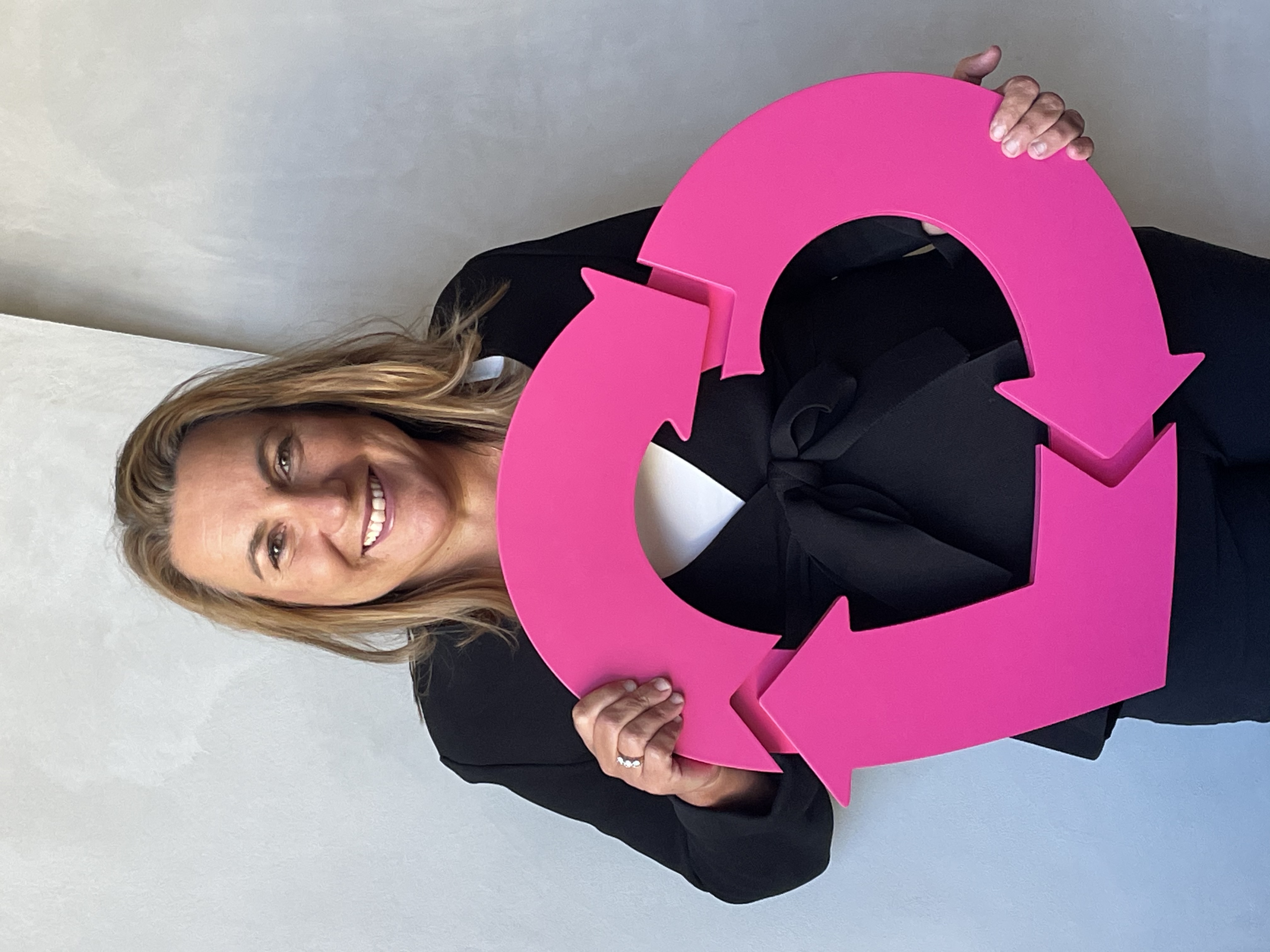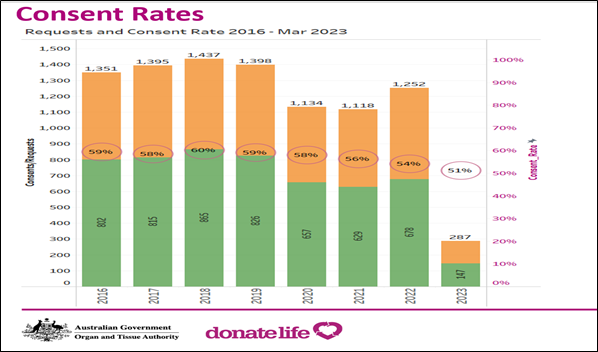
Lucinda is privileged to be the Chief Executive Officer of the Australian Organ and Tissue Donation and Transplantation Authority - leading the national program which aims to save and improve people’s lives through organ and tissue donation.
Lucinda has a wealth of experience and knowledge in health care. In her exemplary career, she has held leadership roles within government, the public service and in health care management and service delivery.
Her significant service to the public health policy in executive roles, and to medicine, was recognised when she received a Member of the Order of Australia Award in 2023.
Lucinda commenced her career as a Registered Nurse, specialising in Emergency and Major Trauma before becoming a Director of Nursing.
Her career then moved into public policy where she has held senior executive positions in the Australian Public Service.
Prior to commencing in her current role, Lucinda was the Australian Prime Minister's Senior Adviser for Social Policy; including Health, Community Services, Indigenous Affairs, Aged Care & Sport.
The declining consent rate in Australia during the pandemic
Lucinda Barry1, Mark McDonald1, Helen Opdam1, Alison Hodak1.
1Australian Organ and Tissue Donation and Transplantation Authority, Canberra, Australia
Introduction: Australia’s consent rate declined each year of the COVID-19 pandemic, a trend that has continued into 2023.
Factors which influence consent as evidenced by data over the past decade include registration on the Australian Organ Donor Register (AODR) and the presence of a donation specialist in the conversation offering donation.
In Australia individuals can register their decision to donate on the Australian Organ Donor Register (AODR), with 36% of the adult population (16 years or older) currently registered. Families are always asked to confirm the decision at the time donation is possible, or are asked to make a decision for non-registered potential donors.
The Clinical Practice Improvement Program is embedded in close to 90 hospitals in Australia. A key performance indicator is the donation nurse specialist offering donation in a collaborative approach with the treating medical team.
Since 2021, data has shown an increase in the number of family overrides of the documented wishes of registered donors. Overrides have been historically low (around 10%) but have increased to close to 30% this year. It is also felt that restrictions on visitors to hospitals and requirements to wear Personal Protective Equipment (PPE) were creating barriers to communication and impacting consent.
Method: An analysis was undertaken to assess annual rates of consent, trends and factors influencing likelihood of consent.
Data was extracted from the DonateLife Audit, which captures data on patients aged between 28 days and 80 years who died in a hospital ICU or ED, or within 24 hours of discharge from these locations if the death was due to an irrecoverable brain injury.
Results: Consent rates in Australia have fallen during the pandemic years from 59% (2019) to 54% (2022) and year to data showing a further decline to 51%.

An analysis of factors impacting consent during the pandemic found associations with higher consent to be the registration status of the patient (despite the increased overrides), the donation pathway, ethnic and cultural associations, families raising donation and the presence of a donation specialist nurse in family donation communication (as opposed to treating staff alone).
Factors considered potentially detrimental to optimal family communication during the pandemic years included requirements for staff and family to wear full personal protective equipment, family communication by phone or video-conferencing due to hospital access restrictions and reduced availability of donation specialist nurses due to COVID-19 infection or exposure.
Conclusion: Consent rates in Australia decreased in the pandemic and have continued to decrease in 2023. Altered public sentiment and also challenges to in providing family care and communication at end of life and in raising donation may be contributing factors.
AOTDTA Analytics and Technology team.